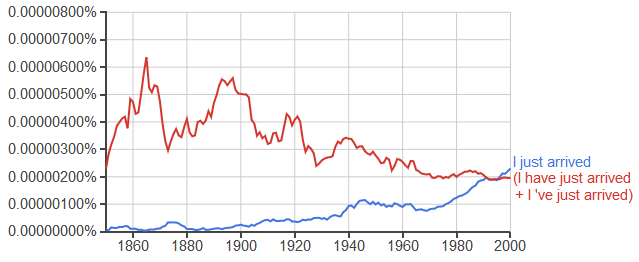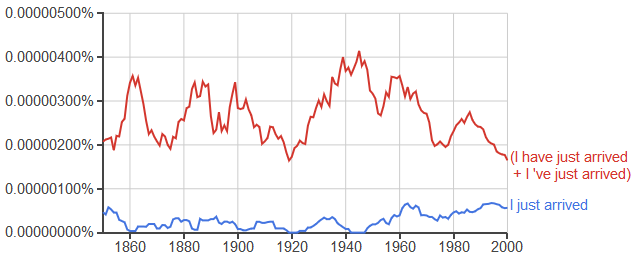The traditional (but now somewhat outdated) rule dictates that “just” is to be used with the present perfect, not the past simple, as in
This seemingly breaks the rule that the present perfect cannot be used with a specific time in the past, e.g.
The present perfect is only used in connection with time ranges from some point in the past until now. When you say “I have never been to Paris”, it means that in the time interval “beginning of your existence → now” you did not visit Paris. When you use the present perfect, you can specify the beginning of the interval, e.g. “I haven’t played football since high school”, but the end is always “now”.
The confusion stems from the fact that people think of “just” as about “a single moment a short time ago”, but it was originally understood as a time interval of the form “a few minutes ago → now”, so it is completely appropriate to use “just” with the present perfect.
Modern usage
If you went a century back, you would almost never hear anyone say “I just arrived” or “they just left”. But, the language develops, and it is becoming increasingly widespread to use the past simple with “just”. Take a look at the following graph showing the relative commonness of “they have just arrived” and “they just arrived” in American literature:

As you can see, the past simple is in fact more common now than the “correct” present perfect. If so many writers can use it “incorrectly”, so can you.
The situation is not so clear in British literature:

Non-native speakers of British English are commonly told that “someone just did” is an error. While it may be wise to follow the rule in English tests, the graph clearly indicates that even professional British writers commonly ignore it. As stated above: If so many writers ignore the rule, so can you, especially in an informal setting.
 Tip: Are you a non-native English speaker? I have just finished creating a
Tip: Are you a non-native English speaker? I have just finished creating a  Web App
Web App
